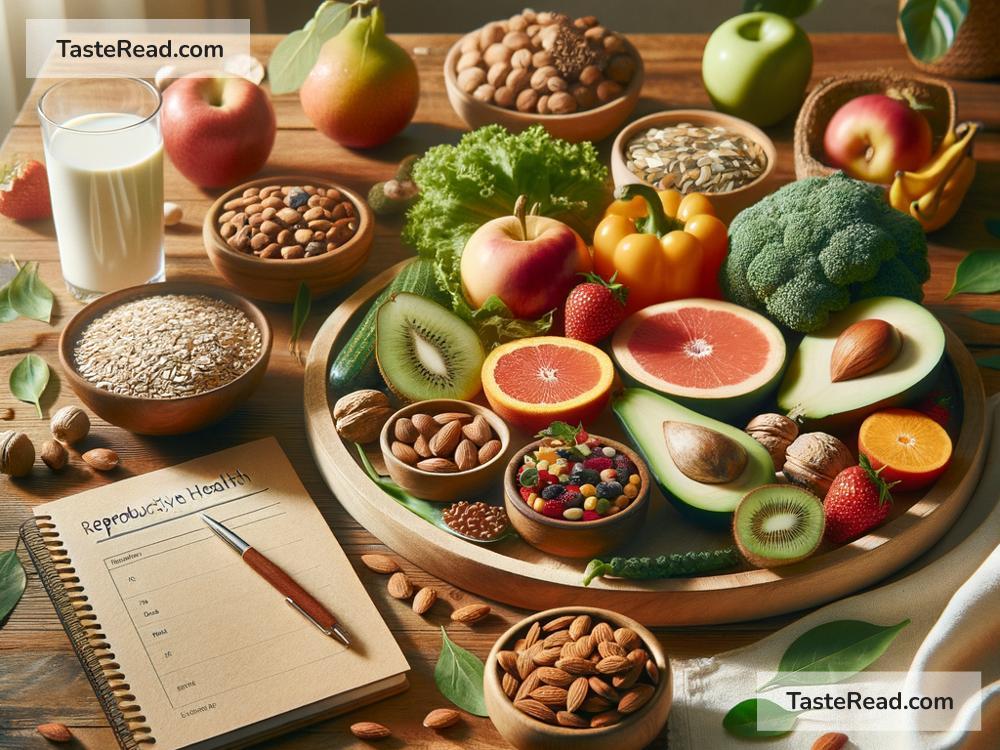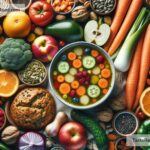The Role of Nutrition in Supporting Reproductive Health
Good nutrition plays a big role in keeping our bodies healthy, and this includes our ability to have children. Whether you’re trying to conceive or you simply want to maintain strong reproductive health, the food you eat can have a major impact. In this blog post, we’ll explore how nutrition supports reproductive health in both men and women, and we’ll share some tips for eating better to improve fertility and hormonal balance.
Why Nutrition Matters for Reproductive Health
Our bodies need the right mix of nutrients to function properly. Just like a car needs fuel to run smoothly, our cells need vitamins, minerals, and energy from food to carry out their jobs. For reproductive health specifically, certain nutrients help regulate hormones, maintain healthy organs, and promote egg and sperm development. Poor eating habits or a lack of essential nutrients can lead to fertility problems or hormone imbalances, which can make it harder to conceive.
Nutrition and Women’s Reproductive Health
Women’s reproductive systems depend on a balance of hormones like estrogen and progesterone. The nutrients you eat can influence how these hormones are produced and whether your body is in peak condition to support pregnancy.
1. Healthy Fats for Hormonal Balance
Foods rich in healthy fats, like avocados, nuts, seeds, and fatty fish, contain omega-3 fatty acids. Omega-3s help reduce inflammation and improve hormone regulation. Hormonal imbalances can lead to irregular menstrual cycles, making it more difficult to pinpoint ovulation.
2. Key Vitamins for Egg Health
Vitamin D, found in sunlight, eggs, and fortified foods, is crucial for maintaining ovarian function. Studies have shown that women with low vitamin D levels may have trouble conceiving. Another important nutrient is folate (or folic acid), which is found in leafy greens, beans, and fortified cereals. Folate supports egg development and can help prevent birth defects if you become pregnant.
3. Iron for Energy and Blood Flow
Iron is important for producing healthy blood cells and ensuring good blood flow to the reproductive organs. Women who suffer from iron deficiency (anemia) may experience irregular periods, which can make it harder to conceive. You can get iron from foods like spinach, red meat, lentils, and tofu.
Nutrition and Men’s Reproductive Health
Men’s fertility depends on the quality and quantity of sperm, and nutrition plays a big part here, too. Certain vitamins and minerals are needed to produce strong, healthy sperm.
1. Zinc for Sperm Quality
Zinc is one of the most important nutrients for male fertility. It supports sperm production and improves the structure of the sperm. Foods like oysters, beef, pumpkin seeds, and chickpeas are high in zinc and can help boost sperm quality.
2. Antioxidants for Sperm Protection
Sperm are sensitive to oxidative stress, which damages cells and reduces their ability to function properly. Antioxidants, such as vitamin C and vitamin E, protect sperm from harmful effects by neutralizing free radicals. Citrus fruits, bell peppers, almonds, and sunflower seeds are great sources of antioxidants.
3. Selenium for Motility
Selenium is a mineral that helps sperm swim better (this is called motility). Men can get selenium from foods like Brazil nuts, eggs, and tuna.
Foods to Avoid for Better Reproductive Health
While eating the right foods can support fertility, there are also foods and drinks that can hurt your reproductive health. Here are a few things to watch out for:
1. Trans Fats
Trans fats, found in processed foods and fried snacks, can interfere with hormone production and increase inflammation in the body. Avoid sugary baked goods and stick to whole, unprocessed options.
2. Excess Alcohol
Drinking too much alcohol can reduce sperm quality in men and affect ovulation in women. Moderate alcohol consumption is usually fine, but cutting back can improve reproductive health.
3. Caffeine in Large Amounts
Having too much caffeine—like several cups of coffee a day—may reduce your chances of conceiving. Limit your caffeine intake to a moderate level, especially if you’re trying to get pregnant.
Simple Diet Tips for Reproductive Health
Here are some easy ways to improve your nutrition for better reproductive health:
- Eat a Rainbow: Include colorful fruits and vegetables in your diet for a variety of nutrients.
- Choose Whole Grains: Swap white bread and rice for whole-grain versions like quinoa or brown rice.
- Drink Water: Staying hydrated keeps your body functioning well, including your reproductive system.
- Plan for Protein: Include lean protein sources like chicken, fish, beans, and tofu in your meals.
- Avoid Processed Foods: Focus on fresh, whole foods instead of packaged meals.
Final Thoughts
Good nutrition is not just about looking or feeling good—it’s about giving your body the tools it needs to function well. Reproductive health is no exception. By eating a balanced diet full of nutrient-rich foods, you can help support fertility, regulate hormones, and prepare your body for pregnancy when the time comes.
Remember, improving your nutrition is a journey. Small, consistent changes can have a big impact over time. If you have specific concerns about reproductive health or fertility, it’s always a good idea to talk to a doctor or dietitian for personalized advice. Your body will thank you!


